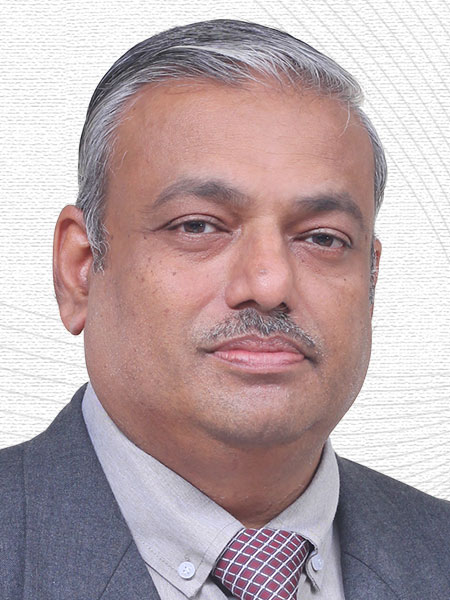
DATE: June 19-23, 2023 |
VENUE: Zoom Virtual Platform / CPSC OnCOURSE |
ORGANIZERS: Colombo Plan Staff College (CPSC) and
Department of Technical and Vocational Education and Training (DTVET), Ministry of Science and Technology (MOST), The Republic of the Union of Myanmar |
PARTICIPANTS' PROFILE: The participants of this program will be composed of Administrators, Directors, Lecturers and Practitioners. |
Background
The knowledge of Research Methodology is a vital approach to collecting data and information. Research Methodology has been simply defined as how a researcher systematically designs a study to ensure valid and reliable research aims and objectives. Therefore, the techniques will be useful in the preparation, development, and discussions will be related to technical vocational studies and beyond.
Research Methodology is determined before research conduction. A correct choice of research methodology helps in determining the success and overall quality of your research study and its documentation. Furthermore, becoming familiar with the research methods used by an area of study allows you to understand it more effectively. In other words, Research Methodology is the specific procedures or techniques used to identify, select, process, and analyze information about a topic. In a research paper, the methodology section allows the reader to critically evaluate a study's overall validity and reliability
Appropriate selection of a research methodology also involves scrutinizing and considering the approaches used by other researchers in the discipline or studies with similar aims and objectives. Researchers from the same disciplines often follow a common methodological approach or set of approaches. While it doesn’t mean we should follow the herd, we should at least consider these approaches and evaluate their merit to your research’s benefit While most methodological approaches will deliver the most scientifically rigorous research design theoretically, the chances of constraints faced practically cannot be overlooked. Hence, it is all the more important to evaluate your research methodology on the basis of its practicality in experimental conditions
Each research in any field, irrespective of its type (qualitative, quantitative, or mixed), has a different purpose and approach that helps in solving its question. Therefore, the key factor for deciding which research methodology to adopt depends on the nature of your research aims, objectives, and research questions. Research and publication are one of the main key elements that need to be focused on in the TVET sector. Proper documentation via publication will lead to producing quality institutions via recognized accreditation for an organization. This research can be carried out using proper research methodology techniques and methods to find the needs and importance for a country.
CPSC has been continuously working with various organizations and agencies and other decision-makers in the TVET sector across the region via their country’s liaison officer to identify key issues which need to be promoted to ensure that research culture will take into consideration to enhance knowledge and create awareness of TVET among teachers, lecturers, and practitioners.
Objectives
At the end of the course, participants should be able to:
- Determine and understand the fundamental concept of Research Methodology
- Familiarize and understand the research framework
- Understand the demand for workforce in TVET via Research Methodology techniques
Expected Outcome
The presentation and workshop activities are directed towards the formulation of Research Methodology in the TVET sector based on the institution and organization’s vision-mission statement, and strategic goals and objectives; for the benefit of TVET Institutes for member countries, especially Myanmar on the workforce in TVET. At the end of the training session, the participants should be able to craft and develop a research methodology via the new technique and methods taught for future workforce demand in the TVET sector which will be used as a basis for organizational and institutional planning.
- Participants will be able to identify suitable research methodology via SWOT analysis
- Participants will be able to perform data collection, sampling, and validate the data in research by using some statistical method
- Participants will be able to identify the issues and concerns on the workforce in TVET via SWOT analysis
- Participants will be able to deliver Basic Research Proposal on Workforce in TVET
Meeting/Workshop Strategies
To achieve the objectives set forth, the following strategies will be employed in a consultative nature:
Presentations on the following:
Theme Papers
- Theme Paper 1: Introduction to Research
- Theme Paper 2: Literature Review Performance
- Theme Paper 3: Basic Research Methodology
- Theme Paper 4: Data Analysis in Research
- Theme Paper 5: Current Trend in Workforce TVET
- Theme Paper 6: Competency and Strategies to meet Myanmar Workforce in TVET
- Theme Paper 7: Research Methodology approach using K-Chart Technique.
- Theme Paper 8: Research Publication – Journal, Citation and References
Exercises and workshops on the following:
Group Work Activities (GWA)
- GWA 1: Workshop on Research Methodology
- GWA 2: Workshop on Data Analysis
- GWA 3: Issues and concern - Workforce in TVET
- GWA 4: Basic Proposal on Workforce in TVET
Instructional Strategies
The program involves different learning methods such as:
- Theme paper presentations
- Group Work Activities
- Group Presentations
- Web-Based Teaching and Learning System through On COURSE
- Action Planning
Participants' Profile
The participants are expected to be composed of the following:
- Administrators, Directors, Lecturers and Practitioners
- At least have 5 years of experience, or more, in handling or managing TVET institutes in Myanmar
- Distinguished experts in TVET
Date and Venue
The five-day meeting and workshop shall be held from June 19 to 23, 2023 via Zoom online platform
Facilities Requirements
To conduct the program smoothly, the following facilities are required:
- Laptop computers (preferably participants to bring their own laptop)
- Internet Connection (LAN/WAN)
- Audio and Video Equipment
- Multimedia Projector and Projection Screen
- Flipcharts and large papers (for brainstorming activities)
- Pens
Program Management and Resource Persons
|
|
|
|
|
|
|
|
|
|
|
|
|
|
Program Schedule
















